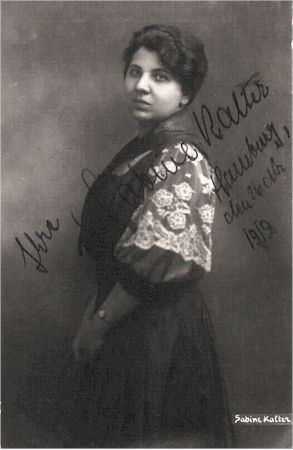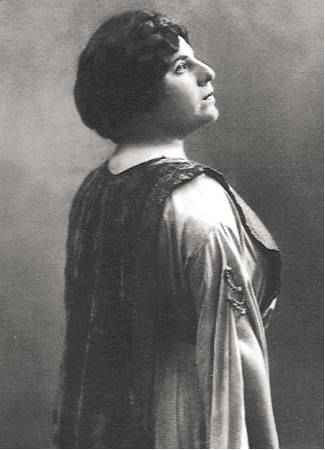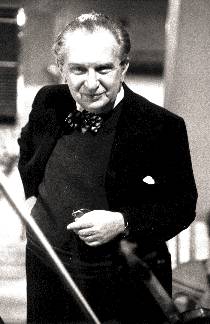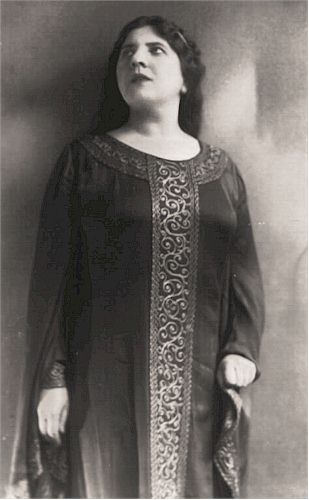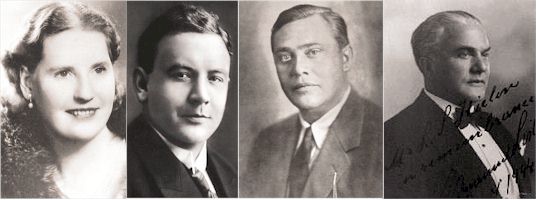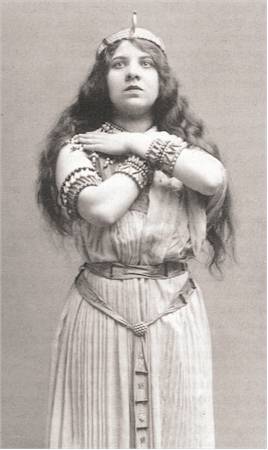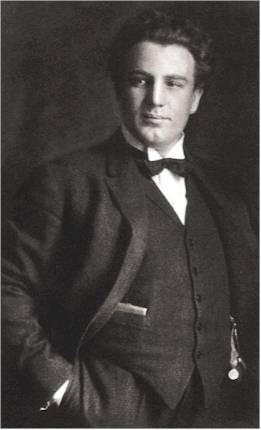Polish contralto, 1889 - 1957
Hamburg, 1919
(by courtesy of Charles B. Mintzer) Biographical notes: Sabine Kalter was born in Jaroslaw, Galicia, and studied singing at the Vienna Musical Academy.
She was engaged by Rainer Simons, director at the Volksoper, who had an unerring instinct in his search for new talents. Sabine Kalter made her debut there in 1911. Two years later, she was
already contracted to the Stadttheater Hamburg (State Opera) as principal contralto, where she had to replace the famous Ottilie Metzger-Lattermann
, and was expected to continue the great tradition in the contralto- and mezzo “fach.” In 1919 she married Max Aufrichtig. Her roles
included not only Waltraute, Ortrud, Fricka, Herodias and Brangäne but also Amneris, Lady Macbeth, Dalila, Orfeo, Marina, Fidès and Carmen. She took part in a number of first
performances: Korngold’s Das Wunder der Heliane (1927), Humperdinck’s Königskinder (1911), Stravinsky’s Oedipus Rex (1928), Hindemith’s Neues vom Tage (1929), Wolf-Ferrari’s I Gioelli
di Madonna and d’Albert’s Liebesketten. Within a short time Sabine Kalter became one of the most popular singers at the Hamburg State Opera and stayed there from 1915 to 1935. Her
international breakthrough began in the early 1920s. The artist was an accomplished recitalist and concert singer, appearing in the Netherlands, Belgium, Spain and Austria. After a highly
successful career at Hamburg, when the Nazis came to power, she was obliged to leave Germany in 1935. The couple changed their names to Andrews. They settled in London, where the singer
managed to continue her career at Covent Garden for another four years. She sang Brangäne opposite Kirsten Flagstad, Lauritz Melchior, Herbert Janssen and Emmanuel List (another Jewish singer) under Fritz Reiner (see recordings). Other performances included Fricka, Ortrud, Háta
in Smetana’s The Bartered Bride and Herodias. In 1939, the artist decided to retire from the opera stage, concentrating on concert and recital work and becoming a singing coach. Her last
concert appearance took place at Hamburg in 1950. Sabine Kalter died on September 1, 1957, in London.
As Fricka Superb recording of Tristan und Isolde recorded live at Covent Garden, 1936
Fritz Reiner
Sabine Kalter as Brangäne
(by courtesy of Charles B. Mintzer)
Kirsten Flagstad - Lauritz Melchior - Herbert Janssen - Emmanuel List
As Amneris (Vienna, 1914) Comment:
Sabine Kalter had a powerful and wide ranging contralto voice, combined with a strong dramatic ability. I do not agree with Scott and Kesting, who described her voice as “neither especially
individual nor attractive.” Fortunately, Preiser dedicated a CD to this singer. I find her especially fine in Aida and Trovatore, in which she sings with a superb Richard Tauber who has
an ideal voice for Radames and Trovatore (!). Kalter’s Amneris is performed with a slightly “motherly tone,” but what a pleasure to hear two voices in Verdi, giving us a lesson what legato
singing is about (despite the German language)! Other highlights of Kalter’s discography are the Wesendonck-Lieder. Her “Immer leiser wird
mein Schlummer” is one of the most beautiful and intimate recordings I have heard. The sound file shows not only her dramatic power but also her capability of singing with inner emotion. My favorite recordings: Odeon, 1923: - Se m’ami ancor with Richard Tauber sung in German (Azucena in Il Trovatore / Verdi) - Ah, mon fils sung in German (Fidès in Le Prophète / Meyerbeer) Odeon, 1924: - Schmerzen (from Wesendonck Songs / Wagner) -Träume (from Wesendonck Songs / Wagner) Odeon, 1925: - Il va venir sung in German (Rachel in La Juive / Halévy)
HMV, 1936: - Immer leiser wird mein Schlummer (Brahms-Lingg)
Richard Tauber as a young man, with whom Sabine Kalter recorded some fine duets My warmest thanks to Charles B. Mintzer and Logan Kleinwaks
|
||||||||||||||||||||||||||
